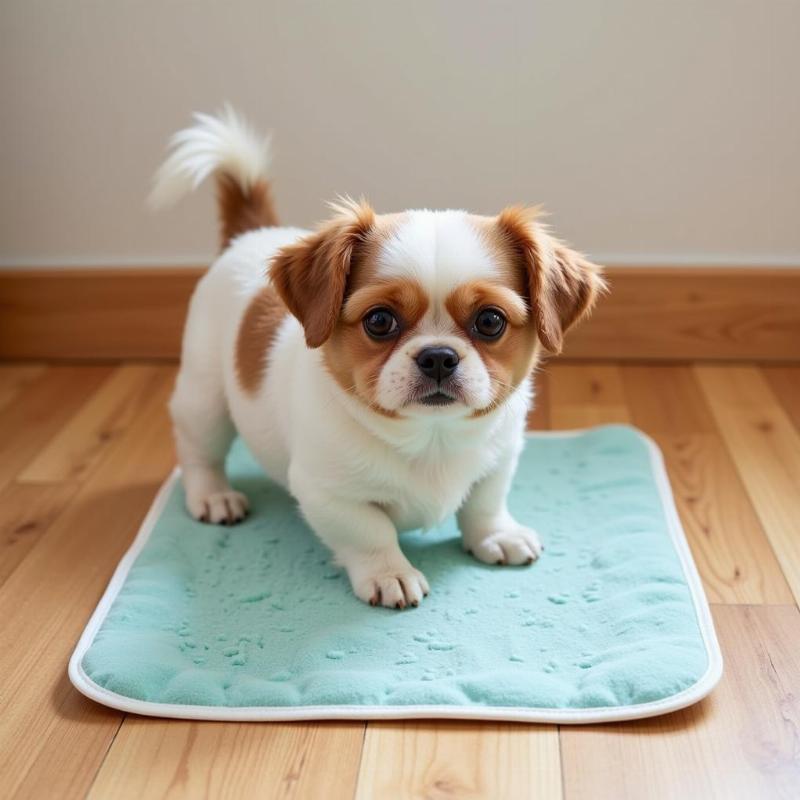House training woes? It’s frustrating when your furry friend refuses to do their business outside. Many dog owners in the US experience this, and understanding the reasons behind this behavior is the first step to solving it. This comprehensive guide will delve into the common causes of bathroom avoidance in dogs and provide practical solutions to help you and your pup achieve potty-training success.
Medical Reasons Your Dog Might Avoid Going Outside
Sometimes, the reason your dog won’t go to the bathroom outside is medical. Conditions like urinary tract infections, bladder stones, or arthritis can make urination painful, causing your dog to associate the outdoors with discomfort. Gastrointestinal issues can also lead to reluctance to defecate outside. If you suspect a medical problem, consult your veterinarian immediately. They can diagnose the issue and provide appropriate treatment.
Behavioral Reasons for Outdoor Bathroom Avoidance
Beyond medical reasons, several behavioral factors can contribute to your dog’s reluctance to potty outdoors. Fear, anxiety, and negative associations are common culprits. Perhaps a loud noise startled your dog during a previous potty break, creating a negative association with the outdoors. Or maybe your dog is simply shy or uncomfortable in unfamiliar environments.
Fear and Anxiety
A fearful or anxious dog may find the outdoors overwhelming. New sights, sounds, and smells can be intimidating, making it difficult for them to relax and relieve themselves. If you live in a busy urban area, the constant stimulation might be too much for your pup.
Negative Associations
If your dog has had a negative experience while going to the bathroom outside, such as being scolded or punished, they might associate the act with unpleasant consequences and avoid it altogether.
House Training Tips and Tricks for Reluctant Dogs
Successfully house training a reluctant dog requires patience, consistency, and positive reinforcement. Here are some proven strategies:
- Establish a Routine: Take your dog out at the same times each day, especially first thing in the morning, after meals, and before bedtime.
- Choose a Designated Potty Spot: Select a quiet, familiar area in your yard and consistently take your dog there. This helps create a positive association with that spot.
- Use Positive Reinforcement: When your dog does eliminate outside, reward them immediately with praise, treats, or a favorite toy.
- Be Patient and Consistent: Don’t punish your dog for accidents. Clean them up thoroughly and continue reinforcing outdoor potty breaks.
Creating a Positive Potty Experience
Make the outdoor potty experience as positive as possible for your dog. Keep initial outings short and sweet, gradually increasing the duration as your dog becomes more comfortable. Avoid distractions and focus on creating a calm and relaxing environment.
Addressing Specific Challenges
Some dogs present unique house training challenges. Puppies, rescue dogs, and small breeds might require different approaches.
Puppies
Puppies have small bladders and require more frequent potty breaks. Be prepared for accidents and focus on positive reinforcement.
Rescue Dogs
Rescue dogs may have had inconsistent potty training in the past. Patience and understanding are key to helping them adjust to a new routine.
Small Breeds
Small breeds can be more sensitive to cold weather, making them reluctant to go outside in winter. Consider using potty pads or a designated indoor area during extreme temperatures.
 A small dog using a potty pad indoors.
A small dog using a potty pad indoors.
Conclusion
Addressing your dog’s reluctance to go to the bathroom outside requires understanding the underlying cause, whether medical or behavioral. By implementing consistent training techniques, creating a positive potty experience, and addressing specific challenges, you can help your furry friend become a house-training champion. Remember, patience and positive reinforcement are key to success!
FAQ
- How long should I wait for my dog to go potty outside? Give your dog 5-10 minutes. If they don’t go, bring them back inside and try again later.
- What should I do if my dog has accidents inside? Clean the area thoroughly with an enzymatic cleaner to eliminate odors and discourage repeat offenses.
- Can I use puppy pads for adult dogs? While not ideal for long-term use, puppy pads can be helpful in certain situations, like extreme weather or for senior dogs with mobility issues.
- Should I scold my dog for accidents? No, scolding can create negative associations and make the problem worse. Focus on positive reinforcement instead.
- When should I consult a vet? If your dog’s bathroom habits change suddenly or are accompanied by other symptoms, consult your veterinarian to rule out any medical issues.
- How can I make the outdoors less scary for my dog? Start with short, supervised outings in a quiet area and gradually introduce your dog to new environments and stimuli.
- What if my dog only goes potty on walks? This is common. Try simulating a walk in your yard by using a leash and walking around with your dog.
Beautdogs.us is your premier source for all things dog-related in the US. We offer expert advice on dog breeds, care, training, and lifestyle. Whether you’re a new dog owner or a seasoned pro, Beautdogs.us is your trusted resource. Contact us today for personalized guidance! Email: [email protected], Phone: +1 501-555-7529.